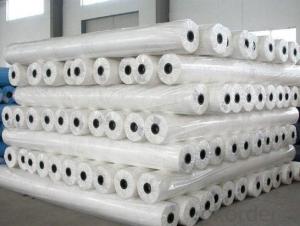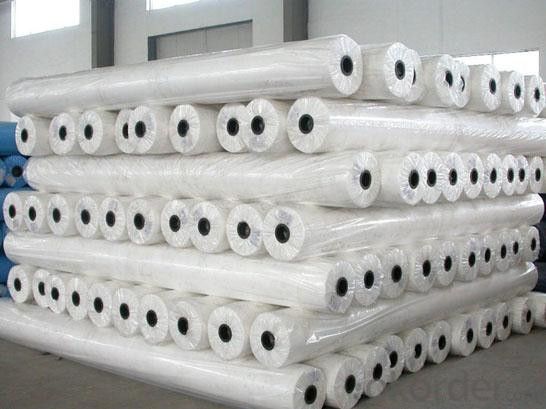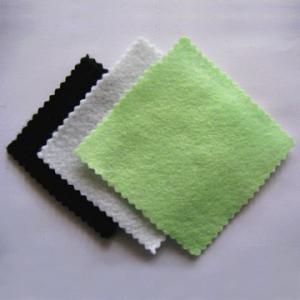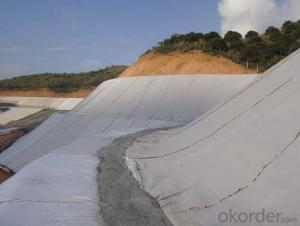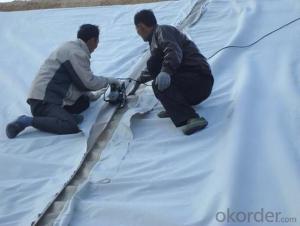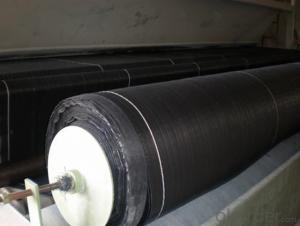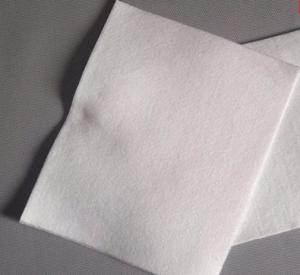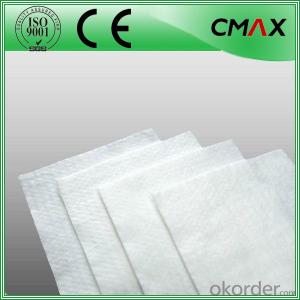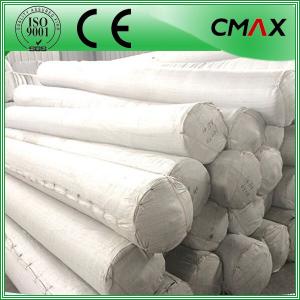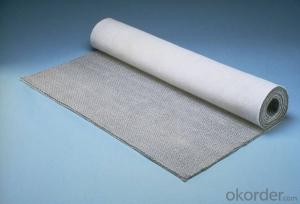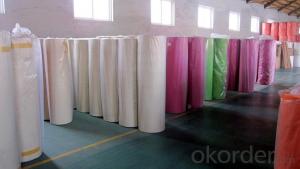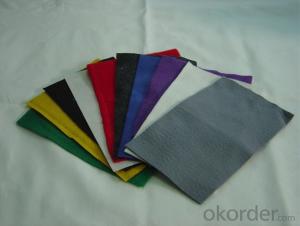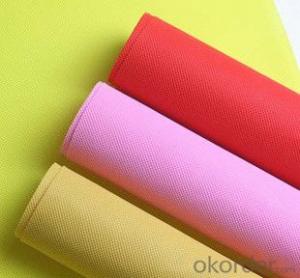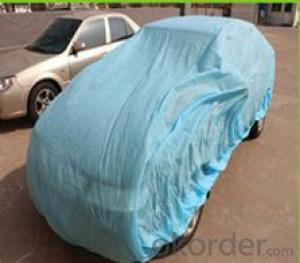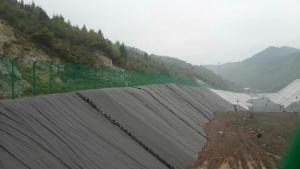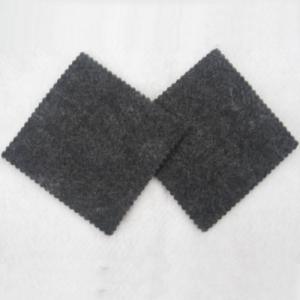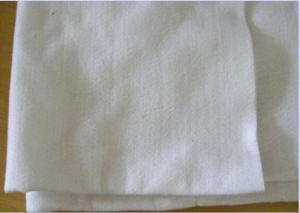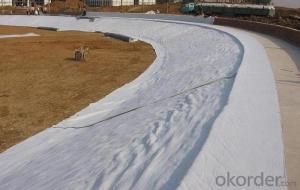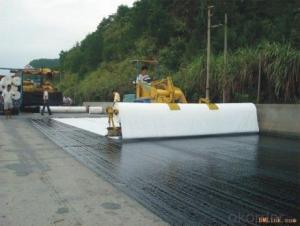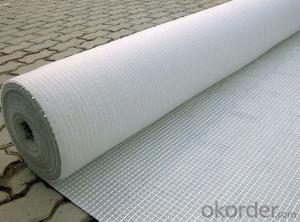Geotextile Fabric PP Spunbonded Nonwoven Fabric Cloth for Plant Cover
- Loading Port:
- China Main Port
- Payment Terms:
- TT OR LC
- Min Order Qty:
- -
- Supply Capability:
- -
OKorder Service Pledge
OKorder Financial Service
You Might Also Like
Introduction of Beige PP Spunbonded Nonwoven Fabricis used to protect the crops in agriculture UV resistance masterbatch could be added 1%~8%. It can protect the vegetable crops and new lawns against extreme weather, animal and insect damage, yet allows light, water and air to penetrate, creating protected growing conditions..
Specification of Beige PP Spunbonded Nonwoven Fabric:
Material | 100% Polypropylene/100%PP |
Width | 0.4--3.2M |
Color | Any color available |
Roll Length | According to your requirement |
Technics | Nonwoven |
Nonwoven Technics | Spunbonded |
Pattern | Yarn Dyed |
Weight | 9-200GSM |
Style | Plain |
Feature | Waterproof,Mothproof,Eco-friendly,Non-toxic,Breathable,Anti-Bacteria |
Certification | ISO9001 |
Usage | Agriculture,Indrustry,Construction,Packaging,Home-textitle, etc |
MOQ | 1Ton/1000KG |
Payment Terms | T/T or L/C |
Delivery Time | Within 7-15 days |
Packaging Detail | Plastic film in roll |
Place of Origin | Shandong,China |
Loading of Port | Qingdao |
Sample | Free samples are available |
Packing of Beige PP Spunbonded Nonwoven Fabric
Each roll is wrapped in a plastic bag with label specification with paper tube inside .
Superiority
1.Free Samples
2.Factory Supply
3.Competitive Price With High Quality
4.More than 20 years experience
- Q: What are the specifications for geotextiles in roadways?
- Geotextiles used in roadways typically have specific specifications, including high tensile strength, puncture resistance, and durability to withstand heavy traffic loads. They are often made from synthetic materials like polypropylene or polyester, with a minimum weight per unit area to ensure sufficient strength and stability. Additionally, geotextiles for roadways should have proper drainage capabilities to prevent water buildup and promote better road performance.
- Q: 25og / m2 filter geotextile is what
- 250g / square meters of geotextile, I am specializing in production
- Q: Can geotextiles be used in mining applications?
- Yes, geotextiles can be used in mining applications. They are commonly used in mining operations for various purposes such as erosion control, slope stabilization, drainage, and filtration. Geotextiles help in preventing soil erosion, managing water flow, and enhancing the overall stability of mining sites. They are also used for lining tailings ponds and controlling sedimentation. Overall, geotextiles play a crucial role in improving the efficiency and environmental sustainability of mining operations.
- Q: What are the different types of geotextile installation equipment?
- There are several types of geotextile installation equipment, including but not limited to: 1. Geotextile rollers: These are used to unroll and distribute geotextile fabric smoothly and evenly over the intended area. 2. Geotextile sewing machines: These machines are specifically designed to sew together overlapping sections of geotextile fabric, ensuring a secure and durable installation. 3. Geotextile staplers: These handheld tools are used to secure geotextile fabric to the ground or other surfaces using staples, providing additional stability and preventing shifting. 4. Geotextile cutting tools: These can include scissors, utility knives, or specialized cutting devices, which are used to trim and shape geotextile fabric as needed during installation. 5. Geotextile tensioning devices: These devices are used to apply tension to geotextile fabric during installation, ensuring it remains taut and properly positioned. Overall, these different types of geotextile installation equipment are essential in achieving effective and efficient geotextile installation for various applications.
- Q: What are the specifications for geotextiles used in transportation projects?
- The specifications for geotextiles used in transportation projects generally include criteria such as tensile strength, puncture resistance, thickness, permeability, and durability. These specifications ensure the geotextiles can effectively separate, reinforce, and filter materials in road construction, preventing the mixing of soil layers, enhancing stability, and improving drainage.
- Q: What are the design considerations for geotextile-reinforced pavement systems?
- Some design considerations for geotextile-reinforced pavement systems include choosing the appropriate geotextile material, determining the optimal placement and orientation of the geotextile, considering the load-bearing capacity and stability of the pavement system, assessing the potential for soil erosion and filtration, and evaluating the long-term durability and maintenance requirements of the system. Additionally, factors such as climate, traffic volume, and site-specific conditions should be taken into account during the design process.
- Q: Can geotextiles be used for reinforcement in retaining walls?
- Yes, geotextiles can be used for reinforcement in retaining walls. They are commonly used to provide stability and prevent soil erosion behind the retaining wall. The geotextiles act as a barrier, separating the soil layers and allowing water drainage while providing additional strength and stability to the structure.
- Q: What are the factors to consider when specifying geotextiles?
- When specifying geotextiles, it is important to consider factors such as the type and purpose of the project, the desired functions of the geotextiles (filtration, separation, reinforcement, etc.), the site conditions, the expected loads and stresses, the required durability and longevity, the installation and maintenance requirements, and the cost-effectiveness of different geotextile options.
- Q: What is the geotextile for ditch drainage?
- Is to use ordinary polyester staple geotextile, for the role of water filtration. Huazhi geotextile materials, geotextile solution manufacturers
- Q: How do geotextiles help in stabilizing slopes?
- Geotextiles help in stabilizing slopes by providing reinforcement and erosion control. They are placed between soil layers to enhance their strength and prevent soil movement. Geotextiles act as a barrier, distributing the load over a wider area and reducing the risk of slope failure. Additionally, they promote drainage and filtration, preventing the accumulation of water that can weaken the soil and lead to erosion.
Send your message to us
Geotextile Fabric PP Spunbonded Nonwoven Fabric Cloth for Plant Cover
- Loading Port:
- China Main Port
- Payment Terms:
- TT OR LC
- Min Order Qty:
- -
- Supply Capability:
- -
OKorder Service Pledge
OKorder Financial Service
Similar products
Hot products
Hot Searches
Related keywords
